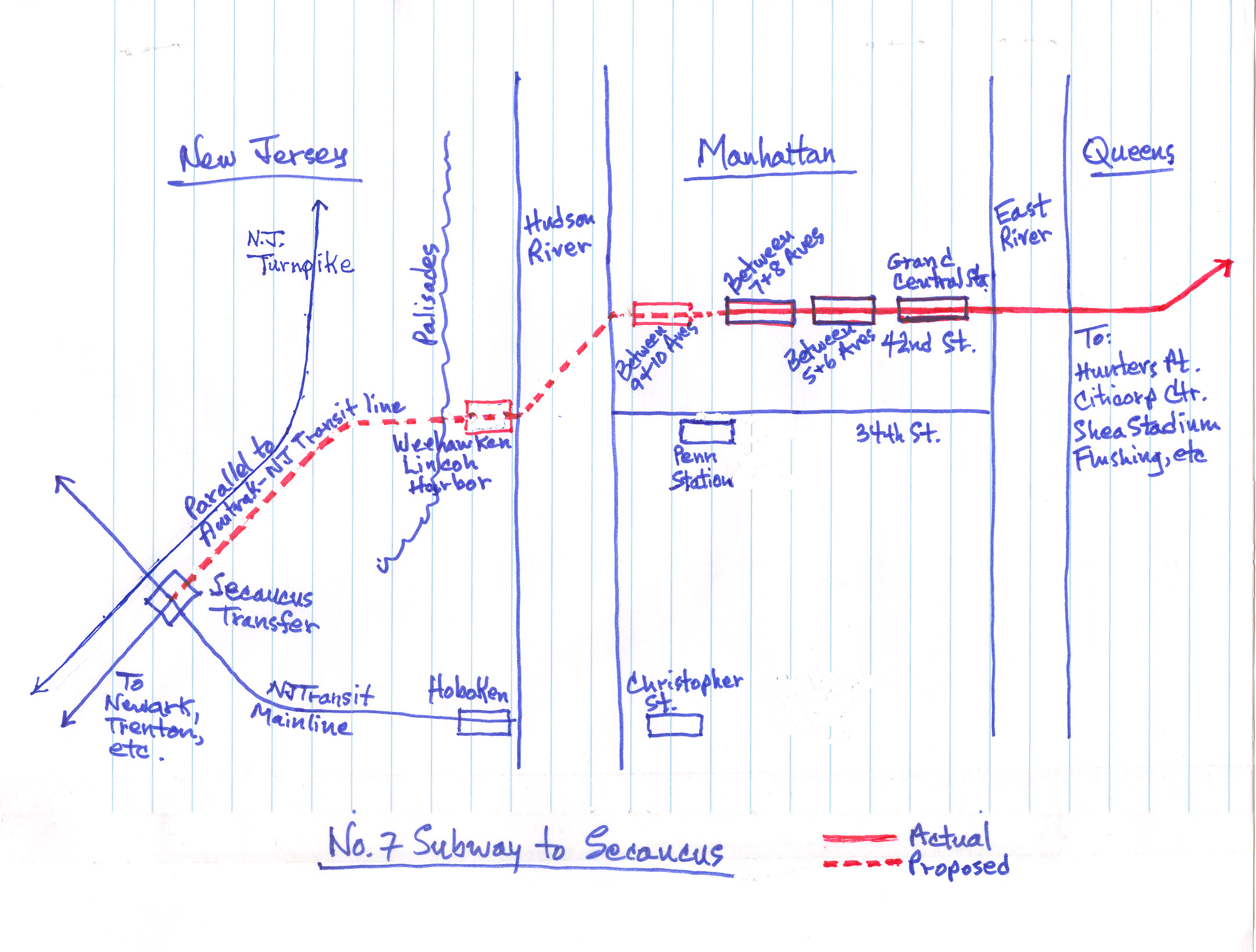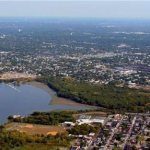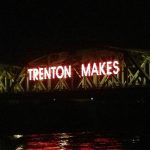New Jersey Future Blog
Extending the No. 7 Train: More Pipe Dream than Panacea
December 9th, 2010 by Jay Corbalis
Even before the dust has settled (and outstanding debts have been resolved) from Governor Christie’s decision to cancel the Access to the Region’s Core (ARC) tunnel project, a new– or at least reincarnated — project has emerged to take its place. The idea of extending the New York Metropolitan Transit Authority’s No. 7 subway train to Secaucus has been floated by the Bloomberg administration as a way of easing the capacity crunch between New York and New Jersey. The extension across the Hudson River would be in addition to the extension of the line that is currently under way from its western terminus at 42nd Street/Times Square to the so-called Hudson Yards at 32nd Street and 11th Avenue.
As a transportation project, the idea has merit. It would provide additional, needed trans-Hudson capacity to accommodate the hundreds of thousands of New Jersey residents who travel between the two states every day. It would also provide a direct link to Grand Central Terminal and Manhattan’s East Side (as well as Citi Field), which does not exist today for New Jersey residents.
Yet even with these potential benefits, the project is a poor substitute for ARC, and will likely never be built. The ARC tunnel would have provided a huge boon to the North Jersey region by vastly expanding the number of stations that offer a “one-seat ride” into Manhattan. This improvement would have increased property values in those areas by a combined $18 billion, generated economic development opportunities around NJ Transit stations, and saved thousands of riders time on their daily commutes. It also would have helped transform the landscape of North Jersey by encouraging more compact, mixed-use transit oriented development. The extension of the No. 7 train would neither expand the opportunities for a one-seat ride nor spur the kind of economic growth and rise in property values that would have been generated by the ARC project.
Moreover, for all the handwringing about ARC’s purported lack of connection to Penn Station (in reality, the ARC station would have connected directly to Penn, as well as 12 New York City subway lines), the extension of the No. 7 train would not connect to Penn Station at all. Finally, while the additional capacity created by ARC would have allowed for a significant expansion of intra–New Jersey rail service, the expansion of the No. 7 train expansion offers no such benefit. Because the existing Amtrak/NJ Transit tunnel will still be full (NJ Transit commuter trains would not be able to use a new subway tunnel), the agency cannot add new, or significantly expand existing, service to New York, diminishing the potential for expansions like the MOM line, West Trenton line and Lackawanna cut-off.
Beyond the transportation drawbacks, there are political and financial realities that make an extension of the No. 7 train to New Jersey more pipe dream than panacea. While the ARC tunnel project, nearly 20 years in the making, had already cleared complex regulatory, design, engineering and environmental hurdles before it was shelved by Governor Christie, the No. 7 extension is really little more than a back-of-the-envelope idea. Getting it off the drawing board would likely take a decade or more, costing hundreds of millions of dollars, with no guarantee that the projected price (now loosely estimated at $5.6 billion) won’t skyrocket as engineering complexities reveal themselves. (Ironically, ARC was first estimated to cost $5 billion.)
And who will pay for this project? Funding for ARC included the largest-ever commitment of $3 billion in federal funds, plus another $3 billion from the Port Authority of New York and New Jersey. An entirely new funding agreement would have to be achieved for the No. 7 extension, a Herculean task in the current economic environment. While both Mayor Bloomberg and Governor Christie have expressed interest in the idea, neither is in a position to contribute significant funding. New Jersey’s Transportation Trust Fund is broke, and the Christie Administration recently acknowledged what many have long suspected: that it intends to use a portion of the $1.2 billion in New Jersey Turnpike Authority funds “freed up” by ARC’s cancellation to finance road projects in the state. New York is already committed to several major transit projects, including the 2nd Avenue subway and the (New York) extension of the No. 7 train. The MTA has openly opposed giving a further No. 7 extension priority over other transit needs in the city. Finally, the $3 billion federal commitment to ARC is gone, and it is unlikely that the federal government, having been spurned on ARC, will be eager to contribute money to an inferior replacement.
The ARC tunnel project is dead, and unlikely to be revived in the near future. So any proposal that promises to provide additional trans-Hudson capacity, including extending the No. 7 train, must be thoroughly considered. But the notion that the No. 7 extension is interchangeable with, or even a reasonable substitute for, the ARC project is false. ARC was a carefully planned and designed project, with funding in place and shovels already in the ground, that would have had immense benefit for New Jersey. It was derailed, in part, by a successful misinformation campaign that blurred facts and fiction. The No. 7 train extension is an unlikely pipe dream, with very limited benefit to New Jersey. That is, of course, unless you’re a Mets fan.


















Good points all.
THANK YOU for cutting through all the hype about the ARC cancellation. I actually thought Christie would see the big picture and deliver on the tunnel. It’s sad that he’s just turned into another run-of-the-mill politician and left ARC to be dealt with years down the road. All we can hope and fight for is that when this bout of spending phobia subsides in a couple of years that the project is revived.
Coming to the conversation late, but I think you’re overstating some of the benefits of ARC understating some of the benefits of the subway to Secaucus.
First, although ARC would have opened up a one-seat ride to Manhattan from three North Jersey lines for the first time, those riders would still have arrived at the Penn Station/Herald Square area, when the majority of jobs in Midtown Manhattan are located in the East Side/Grand Central district. Even if ARC had allowed a single-seat ride from Ridgewood to Penn Station, an East Side-bound passenger would still have been facing another two seats from Penn Station to his or her final destination, making the total home-to-work commute a three-seat ride. By comparison, the subway to Secaucus would allow that rider to make a single transfer from NJ Transit to the 7 train that will bring him or her straight to Grand Central.
Second, the demise of ARC shouldn’t have any impact on NJ Transit’s ability to expand intrastate rail service. None of the three projects you cite — the Lacakwanna Cutoff, the West Trenton line and the MOM route — contemplated service to Manhattan through either the existing tunnels or the proposed ARC tunnels, and ARC’s demise shouldn’t affect their viability. Lackawanna Cutoff service is designed as a Scranton-to-Hoboken route with New York connections available at Secaucus, and MOM is planned as a Lakehurst-to-Newark (or Hoboken) route, with New York connections available at the terminus. The same is true of the proposed West Trenton line, which would run from West Trenton to Newark.
The points you make about the availability of funding for a subway expansion, bureaucratic resistance, and the amount of time that it would take to engineer and approve the project are, of course, legitimate, but those challenges don’t undercut the fact that an expansion of the 7 train to Secaucus would have significant benefits for New Jersey residents.